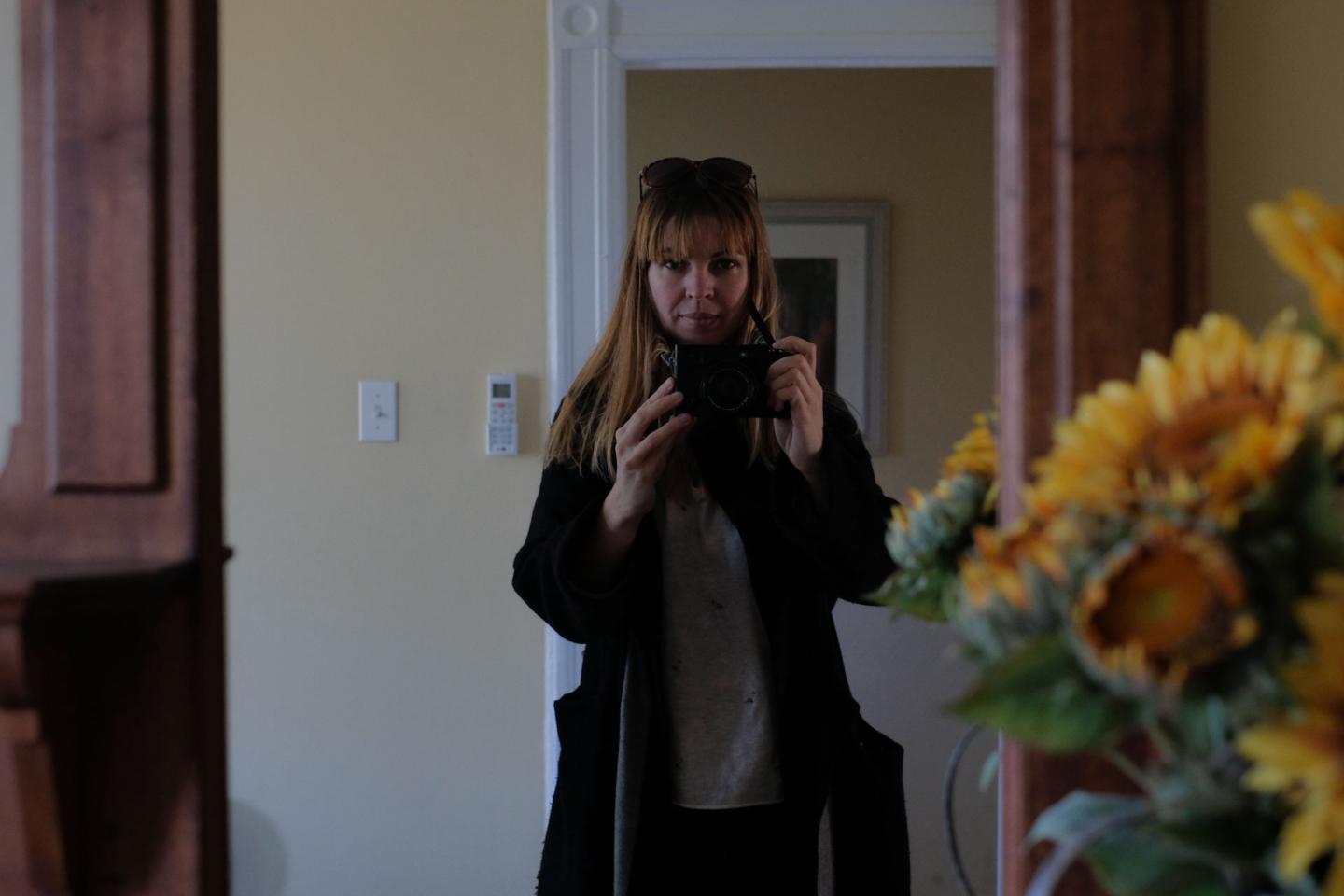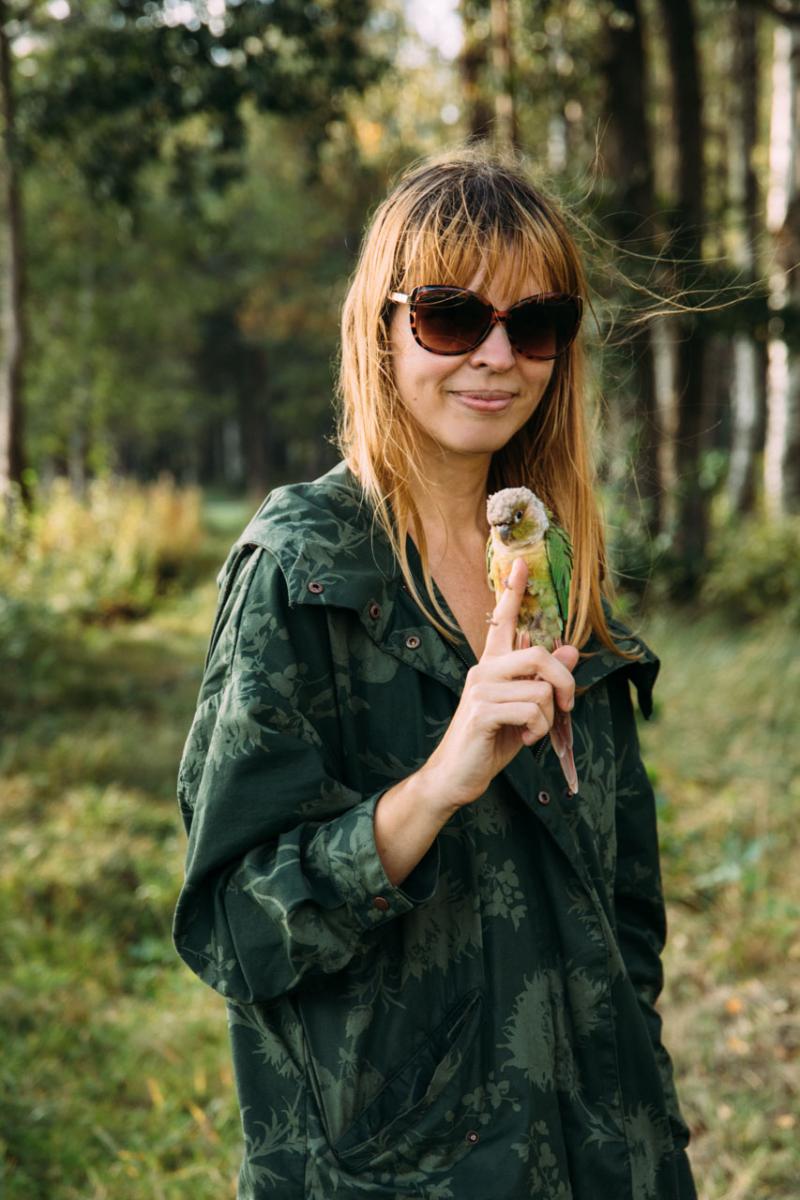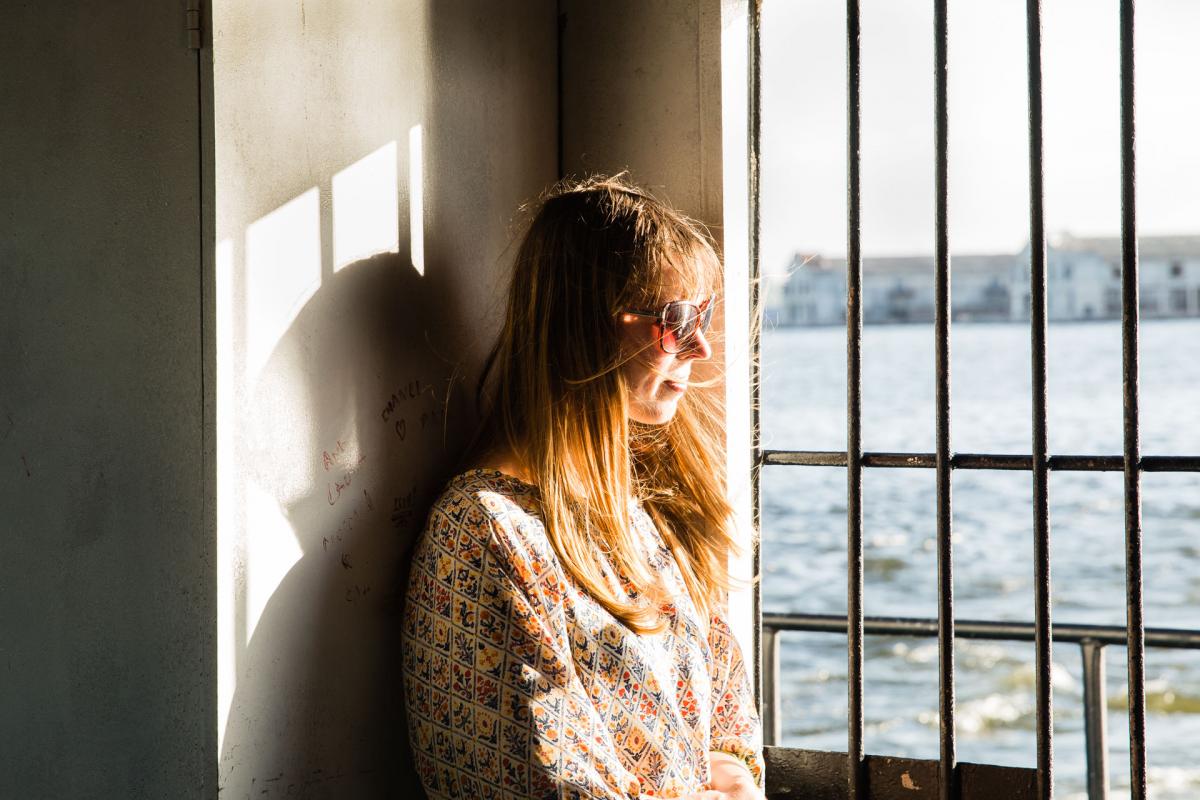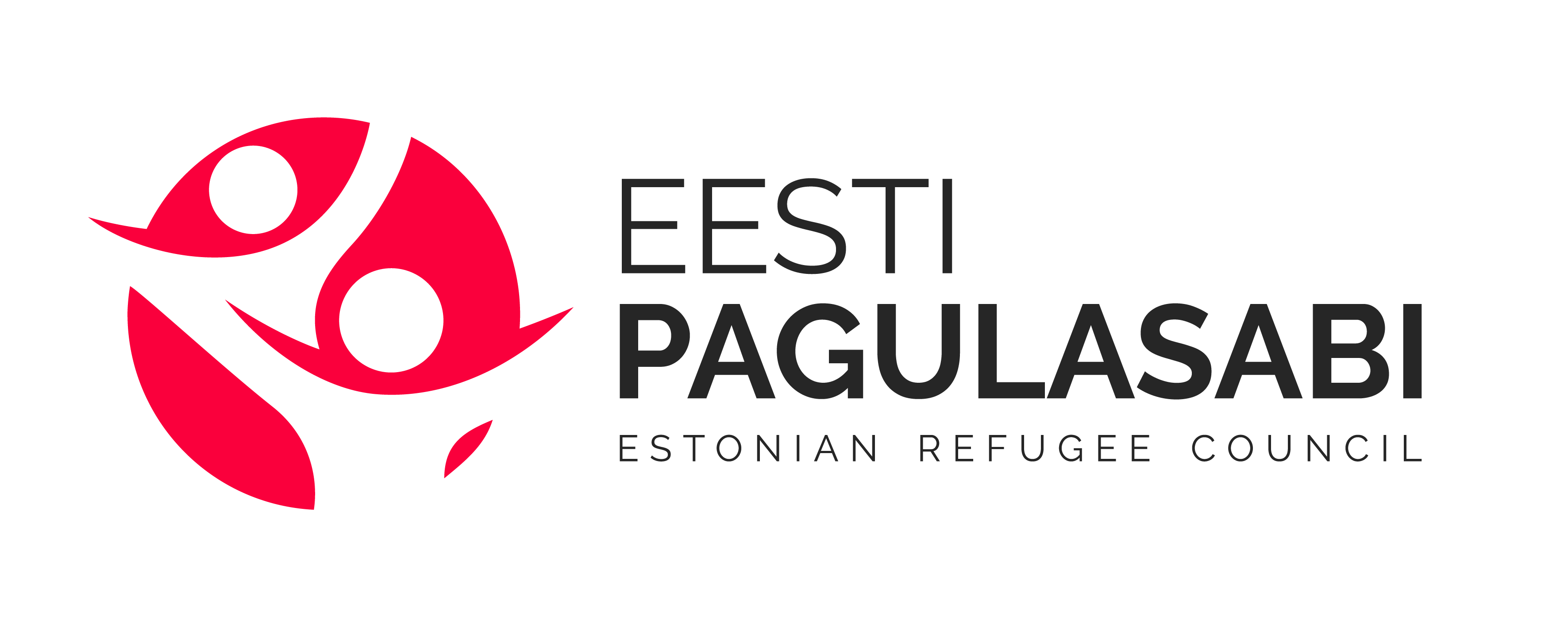
Let's get to know each other: Annela Samuel
Annela Samuel, the coordinator of Estonian Refugee Council events and a photographer, is first and foremost a people person.
Three words with which Annela describes herself: curious, fair, doubtful
How did your morning start?
Today I was up very early, because my younger daughter started her choir rehearse at 8 o'clock in Zoom. It was very nice to listen to the children's songs in another room, it set a good mood for the day. I also started with morning gymnastics. Because of the corona, we sometimes have Zoom meetings in four rooms: my partner, two daughters and me.

What exactly do you do professionally?
I think that my curiosity is expressed in the fact that I have a lot of different interests and jobs. Photography is the work for my soul, I simply have to do it. If I haven't been able to take a picture for a long time, I get nervous and restless. In Refugee Council, I am coordinating the Let's Get to Know Each Other project, although now everything has stopped due to the corona. We do these events all over Estonia, in small places: we bring together people with a migrant background and the locals. Cooking events are especially popular, but sometimes we also have craft workshops and music evenings. We have also been organizing children's and youth camps for four years now. Since the autumn of last year, I have been studying for a doctorate in social work at Tallinn University. To put it very broadly, I also deal with the issue of minorities there and see how art-based methods, including visual methods such as photography, can be applied in social work.
If at first it may seem that all these things are very separate, then in fact one thing led to another and everything is connected.
You said photography is very close to your soul. Why?
I like stories and through the camera I can tell others' stories. At the same time, there is always a bit of myself in these stories. With the documentary photos, the photographer can also shed light to social problems, bring the attention to some groups that might otherwise not be noticed. I have worked on two major documentary photo projects from two Estonian cities - Paldiski and Sillamäe. Both have a very exciting history and underwent rapid development during the USSR. Paldiski was built largely to serve military facilities, and Sillamäe was built for a secret uranium plant. These are the cities whose history and people still fascinate me: how the locals got to live there, what do they think and how do they see life. I took portraits, city views, photographed homes. I also went to Berlin with one exhibition. I also hoped to go to Berlin with the Sillamäe exhibition in May, but unfortunately it will be postponed to autumn due to the pandemic, when the situation in the world will hopefully improve.
When did you discover photography for yourself?
I don't remember taking pictures when I was young. I graduated in law and worked for many years as a lawyer in both the court and the Ministry of Justice. When I was expecting my second child, nine years ago, I received my first camera as a gift from my partner. After the birth of my second daughter, I went to the art academy for a one-year photography course. From there, the snowball started rolling and it still fascinates me a lot. I think that being a photographer in turn brought me to Estonian Refugee Council. When there was a migration crisis, there was a great deal of confrontation in society. As a volunteer, I wanted to help in some way and I did basic support training, waited half a year and got the first person from Iraq to support. I did all this parallel to my own photographic work. As a support person, I also helped a family with Kurdish roots, but then I ended up at the social enterprise Siin & Sääl. Smaller projects followed, including children's camps. Refugee Council projects, in turn, gave me a lot, and thanks to that I ended up in university again, because I felt that I wanted to know more and learn more about working with people with a migrant background.
What inspires you?
I think new and exciting ideas, thoughts, people around. I believe in co-creation, it's a very powerful thing. The supervisor of my dissertation is an extremely inspiring person who dares to do things differently than usual in the world of science. Small moments of children give a good deal, or your own experience of success. The whole thing - for me, everything is interconnected.

What do you like to do in your free time?
Go to my favorite places in Estonia, be with children. I am from Võru myself, as soon as spring comes, I feel like I want to get out of Tallinn. To a summer house in Võrumaa or to the village of Nina near Lake Peipsi, where our friends live. There are a bunch of children, dogs, silence and peace and a real paradise. The ideal day for me would be traveling or hiking there or somewhere new. But I also really like urban space. I am a fickle soul, I like both the city and the countryside. I also miss photography trips to some nice city, where I usually go a few times a year and take pictures of people on the street, ie I do street photography, which is probably my biggest hobby. It's nice to spend a long time in some cities and feel how at first a city space unfamiliar to you will gradually become friends with you. It's very fascinating.
What do you dream of in the future?
I live more in present moment and don't make long plans. I want to do things that interest me. It is exciting to work for the Refugee Council, it is exciting to be at university, take photos, spend time with family. Wherever possible, I follow my heart. I have a well-supporting partner, children, mother, friends next to me. When I do things for pragmatic reasons, I usually fail. I have to listen to myself and, wherever possible, act on my heart.
